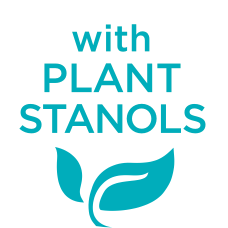What is cholesterol?
Cholesterol is a wax-like, fatty substance found naturally in our blood, which plays an essential role in how our body works. It’s part of every cell in our body and has many important functions. For example, it’s used as a building block to make hormones such cortisol, testosterone and progesterone. It’s used to make bile acids, which help to digest fat. And it’s a component of vitamin D.
But, having too much cholesterol in our blood can clog up our arteries and this can increase our risk of developing coronary heart disease (CHD). Globally, a third of CHD is attributed to high cholesterol*.
However, it’s important to remember that CHD has many risk factors and it’s the sum of the parts that’s important. The more risk factors you have such as high cholesterol, high blood pressure, being overweight and smoking etc. the more likely you’re to be at risk of CHD and other health problems. So although you cannot change your age, gender and family history, it’s important to make sure you’re taking care of all of those risk factors for CHD that you can change.
Obviously, many of these risk factors overlap and influence each other – make improvements in one area, like your cholesterol levels and you’re likely to see them in another. For example, eating Benecol foods with added plant stanols, as part of a healthy diet and lifestyle, low in saturated fat and rich in fruit and vegetables can positively impact your cholesterol levels, and could help you shift some weight and lower your blood pressure too.
*World Health Organisation. Raised cholesterol. Available at https://www.who.int/gho/ncd/risk_factors/cholesterol_text/en/
